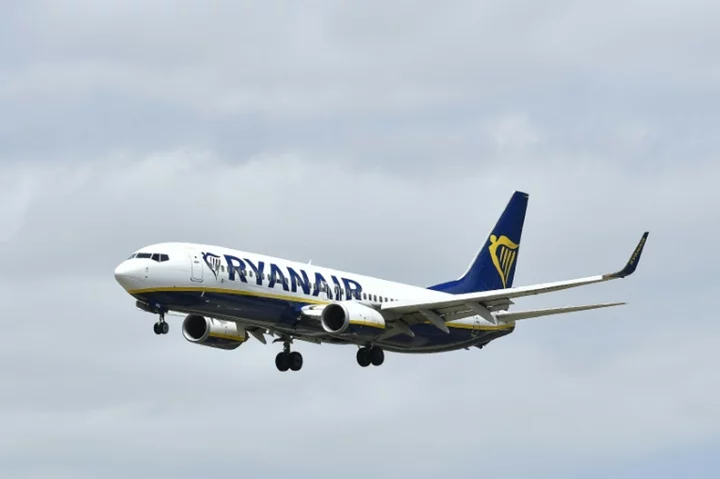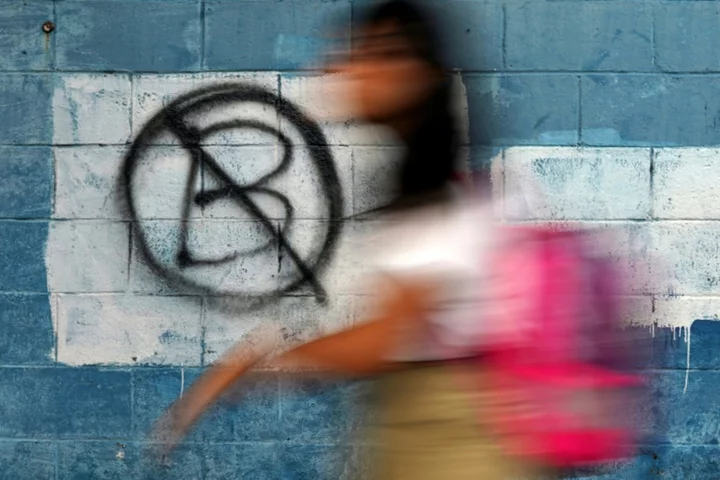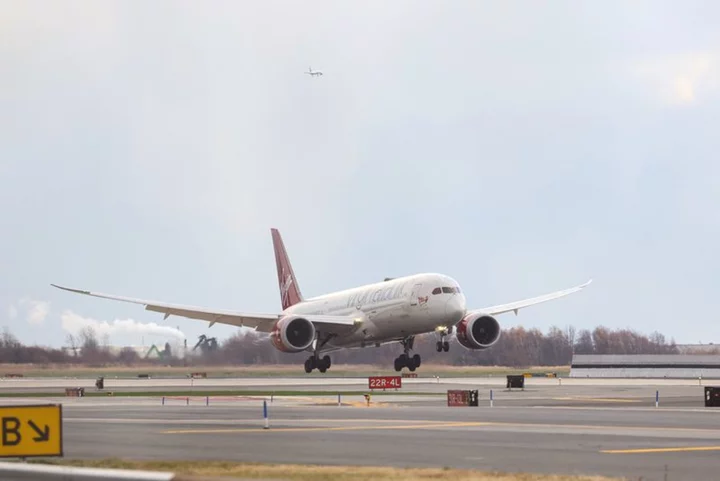Irish no-frills airline Ryanair rebounded back into bumper annual net profits, boosted by a "strong" post-Covid recovery despite spiking costs, it announced Monday.
Profit after taxation soared to 1.4 billion euros ($1.5 billion) in the 12 months to the end of March, after a net loss of 355 million euros in its previous financial year, Ryanair said in a results statement.
The Dublin-based carrier had narrowed losses in its prior 2021/2022 fiscal year, boosted by the lifting of coronavirus lockdowns.
"Over the last year we have seen a very strong post-Covid traffic recovery," said chief executive Michael O'Leary in video remarks published alongside the earnings.
"People have been locked up for two years and wanted to go back to travelling," he added.
Revenues more than doubled to 10.8 billion euros on rising fares, as the group reported "strong market share gains" in Italy, Poland, Ireland, Spain and elsewhere in Europe.
Passenger traffic leapt 74 percent to 168.6 million travellers, with fares 10 percent above pre-Covid levels.
"Traffic is now running at 13-14 percent ahead of our pre-Covid volumes, but profitability is still running slightly behind where we were pre-Covid," added O'Leary.
Ryanair said profits were also lifted by "advantageous" fuel hedges. Airlines bet against volatile oil prices by hedging, or taking a defensive position on futures markets.
- 'Robust' demand -
Total operating costs, however, spiked 75 percent to 9.2 billion euros, while the group also faced a net loss in the fourth quarter of 154 million euros.
Monday's results come two weeks after Ryanair ordered 300 Boeing 737 MAX jets worth over $40 billion for delivery from 2027, alongside a major recruitment drive which it hopes will drive massive expansion.
The company is targeting an 80-percent jump in annual passenger traffic to 300 million travellers by 2034, compared with 2023.
It plans to recruit more than 10,000 new cabin-crew members, engineers and pilots, to help meet the goal.
Ryanair's key British rival EasyJet had reported last week that it slashed net losses in the first half of its financial year, or six months to March, as the broader sector recovery continues.
EasyJet, which logged three annual losses in a row due to the pandemic, has predicted a rebound to annual profit as holidaymakers shrug off Britain's cost-of-living crisis.
"Demand for European summer leisure travel looks robust," said Olly Anibaba, analyst at research group Third Bridge.
"Despite inflation weighing on consumer spending, European consumers are still opting for leisure travel over other forms of entertainment.”
rfj/lth









